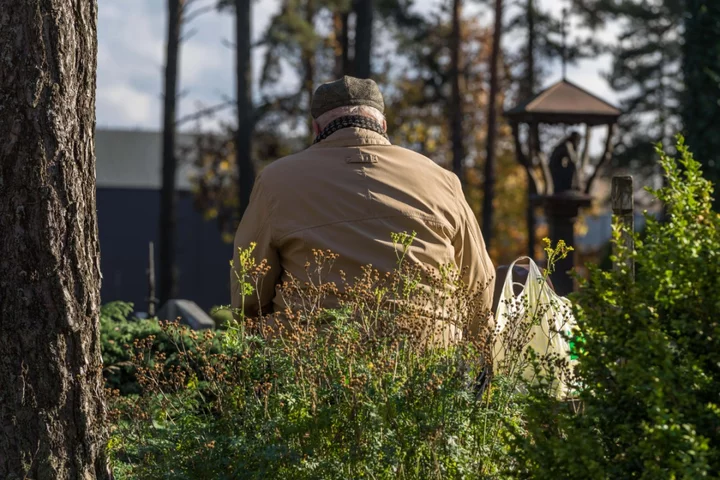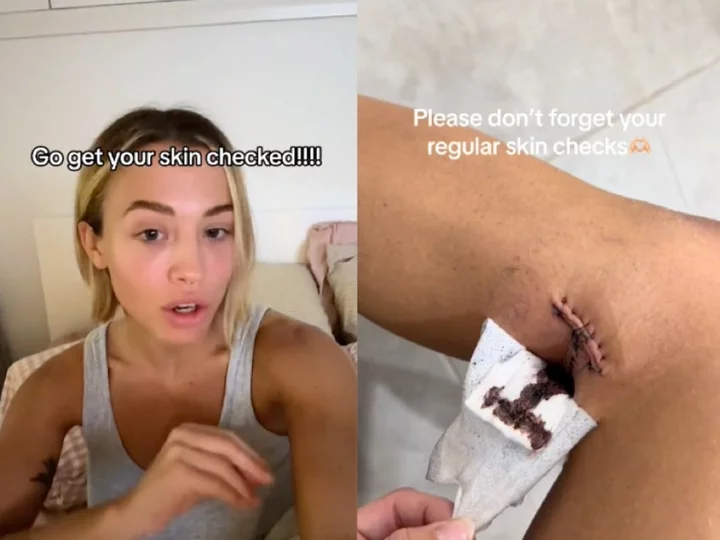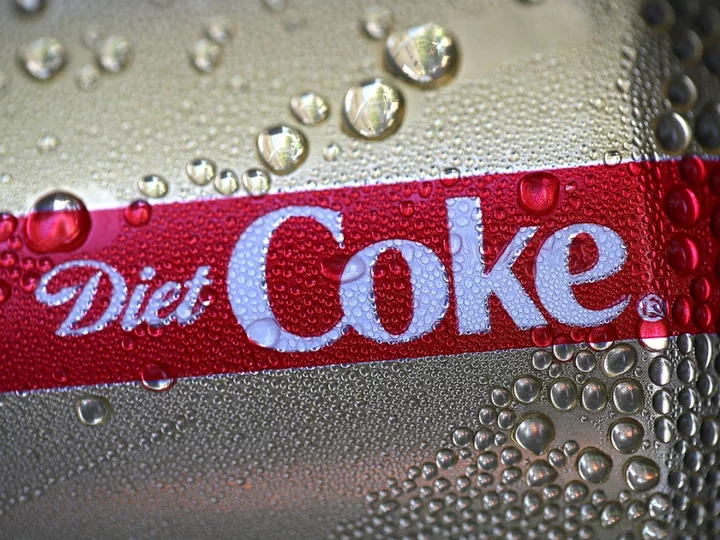
NBA Rumors: Teams don’t believe Giannis Antetokounmpo stays with Bucks long-term
Teams around the NBA are reportedly keeping an eye on Giannis Antetokounmpo's situation, expecting the Bucks start to be available soon enough.According to Ian Begley of SNY Sports, it seems like teams are preparing themselves for the inevitability that Giannis Antetokounmpo will not sign a...
1970-01-01 08:00

Ruben Loftus-Cheek joins AC Milan from Chelsea
Ruben Loftus-Cheek has signed for AC Milan from Chelsea on a four-year contract, bringing to an end a 19-year association with the Blues.
1970-01-01 08:00

Best NRFI and YRFI bets today (Fade Austin Gomber at Coors Field)
One of the most exciting ways to bet on Major League Baseball is by betting on a run to be scored – or not scored – in the first inning of a game.These are called No Run First Inning and Yes Run First Inning bets, and I have one of each that I love for Friday night’s action....
1970-01-01 08:00

USMNT news: Musah to Milan, Reynolds to Westerlo, fixtures announced
Today's USMNT news includes Yunus Musah agreeing to join AC Milan and Bryan Reynolds could join Westerlopermanently.Elsewhere, fixtures have been announced for what will be Gregg Berhalter's first games back in charge of the Stars and Stripes.USMNT news: Yunus Musah to AC MilanYunus Mu...
1970-01-01 08:00

Being lonely ‘may increase risk of heart disease in diabetes patients’
Being lonely may the increase risk of heart disease in diabetes patients, research suggests. Scientists have found loneliness to be a bigger risk factor for coronary heart disease – a condition where the blood vessels supplying the heart are narrowed or blocked – than diet, exercise, smoking and depression. The researchers said their findings, published in the European Heart Journal, highlight the importance of meaningful social relationships to stay healthy. Study author Professor Lu Qi, of Tulane University School of Public Health and Tropical Medicine in New Orleans, said: “The quality of social contact appears to be more important for heart health in people with diabetes than the number of engagements “We should not downplay the important of loneliness on physical and emotional health. “I would encourage patients with diabetes who feel lonely to join a group or class and try to make friends with people who have shared interests.” For the study, the researchers looked at data from the UK Biobank – an online database of medical and lifestyle records from more than half a million Britons – involving more than 18,000 adults aged between 37 to 73. These people had diabetes but no heart disease at the start of the decade-long study. The researchers used questionnaires to assess loneliness and other factors that may affect relationships such as body mass index (BMI), physical activity, diet, alcohol, smoking, and medications, blood pressure, cholesterol and control of blood sugar. The findings suggest that asking patients with diabetes about loneliness should become part of standard assessment, with referral of those affected to mental health services Prof Lu Qi Over the course of more than 10 years, more than 3,000 people developed heart disease, which included coronary heart disease or stroke. The researchers found those who scored the highest in loneliness had a 26% greater risk of heart disease, compared to people with lower scores. The team also found loneliness to be a bigger risk factor for heart disease than diet, exercise, smoking and depression – but showed a weaker influence when compared to kidney function, cholesterol and BMI. Professor Qi said: “Loneliness ranked higher as a predisposing factor for cardiovascular disease than several lifestyle habits. “We also found that for patients with diabetes, the consequence of physical risk factors (ie poorly controlled blood sugar, high blood pressure, high cholesterol, smoking and poor kidney function) was greater in those who were lonely compared to those who were not.” “The findings suggest that asking patients with diabetes about loneliness should become part of standard assessment, with referral of those affected to mental health services.” Read More Charity boss speaks out over ‘traumatic’ encounter with royal aide Ukraine war’s heaviest fight rages in east - follow live 7 ways to save money on your hair Sarcoma Awareness Month: What you need to know about these cancers Bjork’s controversial swan dress to go on display in new exhibition
1970-01-01 08:00

Sarcoma Awareness Month: What you need to know about these cancers
Although most people have heard of sarcomas, research suggests the majority don’t really know what they are. A study by Sarcoma UK found 75% of people didn’t know what a sarcoma was – but there’s no better time than July’s Sarcoma Awareness Month to learn. Sarcomas are rare cancers that can either form in the bones or soft tissues that connect, support and surround other body structures and organs, explains Sarcoma UK. “If you’ve never heard of sarcoma before, you’re not alone,” says Dr Sorrel Bickley, director of research, policy and support at Sarcoma UK. “Sarcoma can affect any part of the body, on the inside or outside, including the muscle, bone, tendons, blood vessels and fatty tissues.” She says around 15 people are diagnosed with sarcoma cancer every day in the UK, and stresses: “It can affect anyone, at any age, and it’s vital that healthcare professionals can recognise its signs and symptoms.” During Sarcoma Awareness Month the charity is running a campaign called Does Size Matter?, in a bid to draw attention to the fact that a lump getting bigger is a key sign of sarcoma. “Most lumps and pains won’t be sarcomas, but it’s important to keep an eye on symptoms and to seek medical help if you’re worried,” stresses Bickley, who explains that many patients tell the charity it’s taken a long time for them to get a correct diagnosis. She adds: “Many people don’t consider their symptoms might be serious. Delays cost lives, and people have a better chance of surviving sarcoma if their cancer is diagnosed early. ” There are around 100 different subtypes of sarcoma, grouped into soft tissue sarcomas and bone sarcomas, and Bickley explains: “Soft tissue sarcomas may not have obvious symptoms in the early stages when the tumour is very small. The symptoms can become more obvious as the sarcoma grows, but this can depend on where in the body it’s found. ” She says there are several main sarcoma symptoms to be aware of… A lump that grows or changes Bickley says sarcoma is a “complicated cancer”, but the most common symptom is a lump, which could be anywhere on the body – including the arm or leg. “Most lumps aren’t harmful and a lump that isn’t getting bigger, isn’t causing any pain, or that has been there for a long time isn’t likely to be anything to worry about,” she says. “But if it’s growing quicky or measures more than five centimetres – about the size of a golf ball – then you should get it checked by your GP.” Swelling or pain in or around a bone Sarcoma cancer can also start in a bone – the most common symptoms are unexplained pain or tenderness around a bone, which may come and go and may be worse at night, explains Bickley. “If the pain is getting worse and doesn’t go away with rest or at night, you should go and see your GP to get it checked,” she advises. Stomach pain, feeling sick and loss of appetite Some forms of sarcoma – known as a gastrointestinal stromal tumours, or GISTs – can start in the gastrointestinal tract. “With this type of sarcoma, people most often experience symptoms like fatigue, anaemia, weight loss, feeling sick or discomfort around their stomach,” Bickley says. Blood in poo or vomit Noticing blood in your poo or vomit can also be a sign of a gastrointestinal stromal tumour, says Bickley, who adds: “There are lots of causes for blood in poo or vomit, but it needs to be checked by a medical professional.” For more information or advice about sarcoma, call the Sarcoma UK support line on 0808 801 0401, email supportline@sarcoma.org.uk, or text 07860 058830 to contact a specialist adviser. Read More Charity boss speaks out over ‘traumatic’ encounter with royal aide Ukraine war’s heaviest fight rages in east - follow live Bjork’s controversial swan dress to go on display in new exhibition Chrissy Teigen welcomes fourth child – how does surrogacy actually work? 11 ways to work the colour clash trend at home
1970-01-01 08:00

Shropshire funding boost to house homeless refugees
Shropshire Council announces plans to buy 10 more homes for those who have fled Afghanistan.
1970-01-01 08:00

MLB standings ordered by pitching whiff rate: Braves, Astros throwing filth
The MLB standings by pitching whiff rate give us a good sense of which teams are throwing the best stuff.Few sporting acts can capture the poetry of motion quite like pitching a baseball. Every pitcher operates as their own unique pace. Each wind-up has its own cadence, each release its own moti...
1970-01-01 08:00

Influencer Tammy Hembrow angers fans by tanning in bikini weeks after having skin cancer removed
A popular fitness influencer has angered fans after posting photos of herself tanning in the sun just weeks after revealing she’d had a skin cancer lesion removed from her leg. Earlier this month, Tammy Hembrow, an Australian-based YouTuber, issued a reminder to her followers about the importance of annual skin cancer screenings in a video posted to TikTok. In the video, the 29-year-old revealed that she’d recently had a “chunk” of her leg removed after doctors identified melanoma, the deadliest form of skin cancer. “Okay so I want to show you guys the chunk they had to take out of my leg because of the melanoma that I have,” Hembrow began the video, before explaining that the week earlier she’d had to get a “skin cancer cut out of my leg”. “It was melanoma, which spreads very quickly and is very dangerous [and] can be very deadly if it spreads,” Hembrow continued, while noting that the mole in question had been “tiny” and “did not look suspicious to [her] at ALL”. In the video, Hembrow informed her followers that she was waiting for confirmation from her doctor that they’d “got it all,” with the influencer noting that she was “very hopeful that they did”. Hembrow then expressed her relief that she’d gotten a skin cancer screening, before urging her fans to “get regular skin checks”.“I am so so so lucky that I went and got my skin checked. Please get regular skin checks, it can honestly be life-saving,” she continued. In the TikTok, the influencer then admitted that, despite spending a lot of time in the sun, she rarely wears sunscreen. However, she said she is “absolutely regretting that now,” as she revealed that the skin cancer scare has “changed [her] outlook on everything”. @tammyhembrow Go book that skin check rn guys ? ♬ original sound - Tammy Hembrow According to the Mayo Clinic, melanoma, the most serious type of skin cancer, “develops in the cells that produce melanin, the pigment that gives your skin its colour”. “Exposure to ultraviolet radiation (UV) radiation from sunlight or tanning lamps and beds increases your risk of developing melanoma,” the health organisation states, while noting that melanomas “most often develop in areas that have had exposure to the sun, such as your back, legs, arms and face”. After revealing that she never thought she’d develop melanoma, and admitting that she felt “very silly for that now,” Hembrow showed her followers the two-inch stitched incision behind her knee where the melanoma had been removed. Hembrow is now facing anger and concern from her fans, just weeks after sharing the skin cancer warning, after posting photos of herself tanning in the sun. In the pictures, which the influencer posted to Instagram on Tuesday, she could be seen wearing a patterned yellow bikini as she posed on a sun lounger while sitting outside in the sun. In the photos, Hembrow could also be seen wearing the bandage on her leg where the melanoma lesion had been removed. “OMG, you just had a melanoma removed and are sunbathing,” one person commented under the photos, while another said: “You’re another type of thick if you’re sunbathing after just having a melanoma removed.” “Literally still has the bandage on from having a melanoma removed and now posting photos of herself suntanning. It’s like she wants to get skin cancer?” someone else wrote. However, Hembrow has since defended herself from the backlash in the comments, where she claimed that she was “in the sun for 15 minutes” and that it’s “silly” to think she can “never go in the sun in a bikini again”. “Was in the sun for 15 minutes. It’s also winter here and I don’t go in the sun without sunscreen anymore,” Hembrow wrote in response to one critic. “Alsooo, I am still very much going to go in the sun, to the beach, to the pool, or even if I just want to read a book for 15 minutes in the sun etc. “Just always going to wear SPF and not be out in the hottest hours with no protection like I used to. People are silly if they think I can never go in the sun in a bikini again…” According to The Skin Cancer Foundation, regular daily use of SPF 15 sunscreen can “reduce your risk of developing squamous cell carcinoma (SCC) by about 40 per cent, and lower your melanoma risk by 50 per cent”. However, skin cancer charity Cancer Research UK notes that individuals who have been diagnosed with melanoma are at a higher than average risk of developing the skin cancer again in the future. The Independent has contacted Hembrow for comment. Read More Sarah Ferguson reveals she almost skipped doctor’s appointment that led to cancer diagnosis Best sunscreen for your face 2023: Daily SPF protection, from sensitive to non-greasy formulas Khloe Kardashian says what she thought was a zit turned out to be melanoma
1970-01-01 08:00

Pete Davidson reportedly enters rehab amid mental health struggles
Pete Davidson has reportedly checked into a rehabilitation center amid ongoing struggles with his mental health. The Saturday Night Live alum, 29, is receiving treatment for his previously diagnosed borderline personality disorder and post-traumatic stress disorder, Page Six initially reported. According to People, sources said Davidson “should be getting out” of the in-patient treatment center “pretty soon”. “Pete will often check himself into rehab to work on these issues,” another source told the outlet. “His friends and family have been supportive during this time.” Davidson has previously been open about his mental health struggles. In 2017, the King of Staten Island actor shared he had been diagnosed with borderline personality disorder (BPD) during an appearance on the WTF With Marc Maron podcast. He explained that he had checked into a rehabilitation center in December 2016 after struggling with symptoms of the disorder. “I started having these mental breakdowns where I would, like, freak out and then not remember what happened after. Blind rage,” the comedian said, noting that he originally thought smoking weed caused his extreme mood swings. He stopped smoking weed and entered rehab, though he resumed the habit and soon had a “really bad mental breakdown”. Davidson was eventually diagnosed with BPD several months later. “I found out I have BPD, which is borderline personality disorder,” he said. “One of my psychiatrists… He was always saying before this big meltdown, ‘You’re probably bipolar or borderline, we’re just going to have to figure it out.’” The Bupkis star also admitted that he was “depressed all the time” but praised therapy for improving his mental health. “It is working, slowly but surely,” he said. “I’ve been having a lot of problems. This whole year has been a f***ing nightmare. This has been the worst year of my life, getting diagnosed with this and trying to figure out how to learn with this and live with this.” That same year, he went on SNL’s “Weekend Update” to further discuss his diagnosis and urge others to seek medical treatment if they think they have depression. “As some of you may know, I was recently diagnosed with borderline personality disorder — a form of depression,” Davidson told viewers. “Depression affects more than 16 million people in this country and there’s no cure, per se. But for anyone dealing with it, there are treatments that can help. “First of all, if you think you’re depressed, see a doctor and talk to them about medication. And also be healthy: eating right and exercise can make a huge difference.” Bipolar personality disorder (BPD) is a type of a mental disorder characterised by unstable moods, behaviour, and relationships. It’s estimated that 1.6 per cent of the US population have BPD. In an interview with Variety in 2019, Davidson shared that he’s been “in and out of mental health facilities” since he was nine years old. His father, Scott Matthew Davidson, was a firefighter who died at the World Trade Center during the September 11 attacks in 2001, when Davidson was just seven. Speaking with Jon Bernthal on his Real Ones podcast last March, Davidson said that the event had an impact on his “fear of abandonment” as well as his PTSD. More recently, he underwent “trauma therapy” in April 2022 due to online harassment from Kanye West while Davidson was dating West’s ex-wife Kim Kardashian. “The attention and negativity coming from Kanye and his antics is a trigger for [Pete], and he’s had to seek out help,” a source told People at the time. Pete Davidson’s latest stint in rehab comes after he was charged with reckless driving in connection with a Beverly Hills car accident, in which he and current girlfriend Chase Sui Wonders crashed into the side of a house. He was reportedly driving in the affluent Los Angeles neighbourhood when his vehicle went over the curb, hitting a fire hydrant and collided into the home. He is expected to be arraigned in court on 27 July. The Independent has contacted Pete Davidson for comment. Read More Pete Davidson charged with reckless driving in connection with Beverly Hills car crash Pete Davidson opens up about borderline personality disorder diagnosis: ‘The weight of the world feels lifted’ Pete Davidson says he learned his firefighter dad died on 9/11 while watching TV
1970-01-01 08:00

Snapchat+ gains 4 million paying subscribers in its first year
Snap said Thursday that it has garnered more than 4 million paying customers for its subscription service Snapchat+.
1970-01-01 08:00

Diet Coke fanatics react to forthcoming WHO announcement on ‘possibly cancerous’ aspartame: ‘The final straw’
Fans of Diet Coke have reacted with despair at reports that the World Health Organisation (WHO) may catagorise aspartame – an artificial sweetener in the drink – a potential carcinogen. It was reported on Thursday (29 June) that the health organisation’s cancer research unit, the International Agency for Research on Cancer (IARC), is preparing to label aspartame as potentially cancerous from July. Aspartame is a low-calorie artificial sweetener that is approximately 200 times sweeter than sugar and is used in a huge number of soft drinks, including Diet Coke, Pepsi Max, Diet Irn Bru, and Sprite Zero, among others. It is also used in foods such as chewing gum, candy, breakfast cereal, frozen desserts and puddings, and gelatins. Although the IARC’s ruling on the sweetener remains confidential until July, Diet Coke fans are already wondering if they might have to give up their favourite fizzy drink. “If they interfere with Diet Coke it will be the final straw for me I’m afraid,” one person warned. Another joked they have already “drunk the Diet Coke equivalent of swimming at a superfund site” in their lifetime. “You can take away my Diet Coke when you pry it out of my cold dead hands,” a third mordantly added. “Listen, if you’re going to take away Diet Coke from us, you better be prepared for 72 per cent of women aged 25-45 to quit their jobs,” another person claimed. “That’s all I’m saying. *Cracks open third Diet Coke before noon*” Others appeared smug that they had never switched from regular full-fat Coke – which contains around 10.6g of sugar per 100ml, equating to 35g per 330ml can – to the low-sugar version. One person referred to a scene from hit series Friends that showed Chandler (Matthew Perry) shouting: “I knew it!” Another said: “I told you all that Diet Coke was just as bad as regular Coke.” The IARC is expected to make its decision over aspartame public on 14 July, the same day as the Joint WHO and Food and Agriculture Organisation’s Expert Committee on Food Additives (JECFA), which is also reviewing aspartame use this year. JECFA has said it is safe to consume aspartame within accepted daily limits since 1981. An adult weighing 60kg (132 pounds) would have to drink between 12 and 36 cans of diet soda every day to be at risk, a view widely shared by national regulators. The additives committee “conducts risk assessment, which determines the probability of a specific type of harm (eg., cancer) to occur under certain conditions and levels of exposure”. The review of aspartame comes after a study conducted by experts from the French National Institute for Health and Medical Research, and Sorbonne Paris Nord University, published on March 2022, claimed it could increase the risk of cancer in people who consume it. But previous large-scale studies on humans have not revealed similar associations. A separate study published last December found that aspartame was linked to anxiety in mice. The deputy chief scientific adviser of the UK’s Food Standards Agency, Rick Mumford, commented on reports and said: “Our view is that the safety of this sweetener has been evaluated by various Scientific Committees and it is considered safe at current permitted use levels. “The IARC report has not yet been published and, when it is, it will be examined by the JECFA, who will put together a risk assessment by the end of July. We will closely study JECFA’s report and decide whether any further actions are needed.” The Independent has contacted Coca-Cola for comment. Read More Walk this way... but not like that: How men’s walks became sexualised Colleen Ballinger: Everything we know about the ‘grooming’ allegations against YouTuber Miranda Sings Kevin Costner’s estranged wife says she’ll move out of their $145m home on one condition ‘My small rash turned out to be a parasite living in my leg after a beach trip’ Chrissy Teigen welcomes fourth child – how does surrogacy actually work? Heart disease digital check-ups for over 40s being rolled out
1970-01-01 08:00
